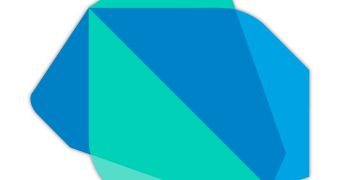Dart, Google's JavaScript replacement, is finally ready for the big time, or that's what the new Dart SDK 1.0 version number seems to suggest. Google is making a big thing out of the milestone, so it's clear that it thinks it's important. The big question remains, of course, whether anyone outside of Google will start using the programing language.
"This release marks Dart's transition to a production-ready option for web developers. The Dart SDK 1.0 includes everything you need to write structured web applications: a simple yet powerful programming language, robust tools, and comprehensive core libraries," Google explains.
"Together, these pieces can help make your development workflow simpler, faster, and more scalable as your projects grow from a few scripts to full-fledged web applications," it adds.
The Dart SDK has everything you need to get started, including the Dart Editor, a code editor, and IDE for the Dart language. But there's one more tool at least that could come in handy, Dartium, the Chromium fork which supports Dart natively.
Dartium comes with a Dart virtual machine built in, so any Dart app will run natively and at full speed. Granted, that's only useful for developers and the development process, as no one actually uses Dartium as their main browser.
That said, one advantage of using a virtual machine for Dart is that the code can be run server-side, similar to what Node.js does for JavaScript. This means that you can write a Dart app and release it in the wild without worrying about browser support. Obviously, that's only useful if it makes sense for your app to run server-side.
For the most common use case though, Dart in the browser, the dart2js translator is the key. The tool converts Dart code into JavaScript, which can run in any modern browser. Google boasts that the conversion approaches native JavaScript speeds and, in some cases, surpasses it. Pure Dart running in the VM is still the fastest way to go and provides some big performance improvements over writing the same app in JavaScript.
"Going forward, the Dart team will focus on improving Dartium, increasing Dart performance, and ensuring the platform remains rock solid. In particular, changes to core technologies will be backward-compatible for the foreseeable future," Google concluded.

 14 DAY TRIAL //
14 DAY TRIAL //